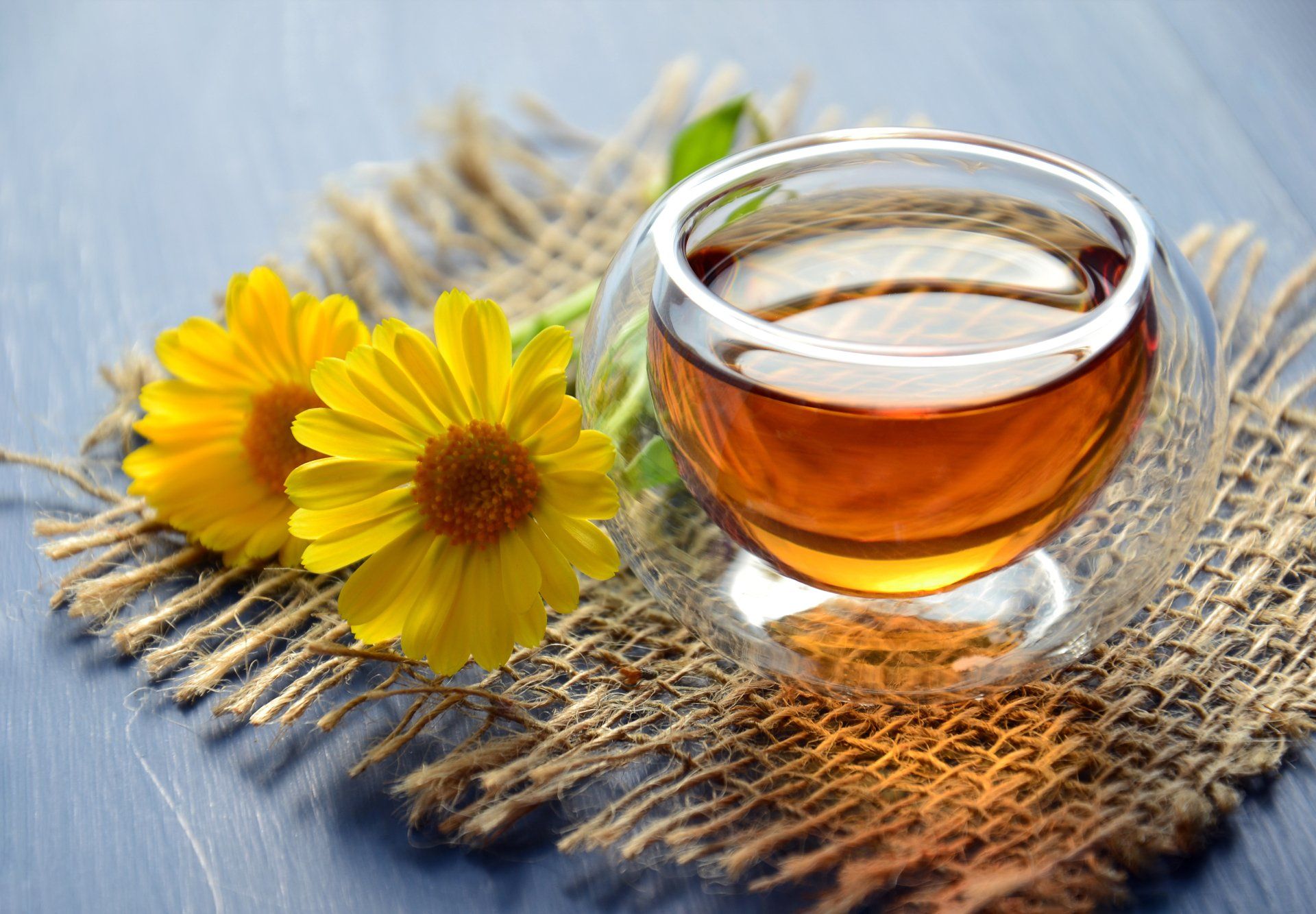10 Naturopathic Ways to Help Manage Seasonal Allergies in kids
Manage Seasonal Allergies in kids

As parents, we all want our kids to be healthy and happy. Seasonal allergies can make life difficult for kids, especially during spring and summer months. Allergies are caused by an overactive immune system that reacts to pollen, dust, animal dander, or other allergens. Allergies can range from mild symptoms to severe, and can be debilitating for kids. That's where naturopathic solutions can help. In this blog, we will go over ten ways to help manage seasonal allergies in kids naturally.
1. Cleanse the air:
Keep your home free from allergens by using HEPA filters or an air purifier. Keep windows and doors closed during high pollen count days.
Here's a link to the 2023 buyers guide of the best home HEPA filters for allergens.
2. Change the bedding:
Wash your child's bedding often using hot water to remove dust and pollen. Use hypoallergenic pillowcases and bed linens to prevent allergies.
3. Use saline nasal spray:
Nasal irrigation, also known as nasal lavage or saline sinus rinse, is a technique that involves flushing the nasal passages with a saline solution to alleviate symptoms of seasonal allergies. It can be beneficial in several ways:
- Clears allergens: Nasal irrigation helps remove allergens like pollen and dust from the nasal passages, reducing the immune system's response to these irritants.
- Reduces inflammation: The saline solution can help soothe the inflamed nasal tissues, providing relief from swelling and congestion.
- Improves breathing: By removing mucus and allergens, nasal irrigation can help improve airflow through the nasal passages, making it easier to breathe.
- Decreases reliance on medication: Nasal irrigation can be an effective complementary treatment for seasonal allergies, potentially reducing the need for medications such as antihistamines and decongestants.
Click here for an example of a nasal rinse for kids
4. Steam inhalation:
Steam inhalation is a popular home remedy for managing the symptoms of seasonal allergies. It involves inhaling warm, moist air to help alleviate congestion and other allergy-related symptoms. Here are some benefits of steam inhalation for seasonal allergies:
- Loosens mucus: Steam inhalation helps thin and loosen mucus in the nasal passages, making it easier to expel and reducing congestion.
- Relieves sinus pressure: The warmth and moisture from the steam can help alleviate sinus pressure and pain caused by inflammation.
- Hydrates nasal passages: Steam inhalation adds moisture to dry and irritated nasal passages, providing relief from itching and discomfort.
- Improves breathing: By clearing congestion, steam inhalation can improve airflow through the nasal passages and make it easier to breathe.
Adding essential oils to the steam can provide additional benefits, as certain oils have properties that may help alleviate allergy symptoms. Some essential oils to consider include:
- Eucalyptus: Known for its decongestant and anti-inflammatory properties, eucalyptus oil can help clear nasal congestion and soothe inflamed airways.
- Peppermint: With its cooling and decongesting effects, peppermint oil can help alleviate nasal congestion and improve breathing.
- Lavender: Recognized for its calming and anti-inflammatory properties, lavender oil can help reduce inflammation and soothe irritated nasal passages.
- Tea tree: Tea tree oil has antihistamine and antibacterial properties, which can help reduce the immune system's response to allergens and prevent sinus infections.
- Lemon: Lemon oil has anti-inflammatory and immune-boosting properties that can help alleviate allergy symptoms and support overall respiratory health.
5. Increase vitamin C:
Increasing daily intake of vitamin C can help control seasonal allergies due to its multiple beneficial properties. Vitamin C is a powerful antioxidant, which helps reduce inflammation in the body. It also has antihistamine effects, reducing the release of histamine, a chemical responsible for many allergy symptoms.
Increasing your daily intake of vitamin C can be achieved through consuming vitamin C-rich foods like citrus fruits, berries, kiwi, and peppers, or through supplementation. However, it's essential to consult a healthcare professional before making significant changes to your diet or adding supplements to ensure safety and proper dosage.
6. Probiotics:
Probiotics, which are beneficial live microorganisms, can help control seasonal allergies by modulating the immune system and promoting a healthy balance of gut bacteria. This balance can influence the body's response to allergens, potentially reducing allergy symptoms.
Some probiotic strains with evidence supporting their role in controlling seasonal allergies include Lactobacillus acidophilus, Lactobacillus casei, Lactobacillus Rhamnosus GG, and Bifidobacterium longum.
Vita Aid Therapeutics has some really great powdered probiotics containing all these beneficial strains. By creating an account on my online dispensary you can view the complete line of Vita Aid Products. Click Here!
7. Avoid dairy:
Dairy can exacerbate allergy symptoms by increasing mucus production. Replace dairy with non-dairy alternatives like almond or soy milk. A food sensitivity test is also sometimes recommended to rule out other possible contributors to allergy symptoms. For more information on food sensitivity testing click here!
8. Honey:
Honey has antiviral and anti-inflammatory properties, making it an excellent remedy for allergies. It is rich in antihistamines and can help reduce inflammation. Add a teaspoon of local honey to warm water.
9. Peppermint tea:
Peppermint tea acts as a natural decongestant and helps relieve nasal congestion. Prepare a cup of peppermint tea by steeping a teabag or fresh peppermint leaves in hot water for a few minutes. Encourage the child to inhale the steam while the tea cools down, and then have them drink the tea. The warm liquid can soothe the throat, while the menthol in the peppermint helps to clear congestion.
10. Butterbur:
Butterbur (Petasites hybridus) is a herbal remedy that has been used to help control seasonal allergies due to its potential antihistamine and anti-inflammatory properties. However, it's essential to consult with a healthcare professional, such as a pediatrician or an integrative medicine practitioner, before administering butterbur to a child to ensure safety and appropriate dosing.
When using butterbur preparations for a child, it's crucial to choose a product that is labeled as PA-free or pyrrolizidine alkaloid-free, as these compounds found in some butterbur plants can be toxic to the liver.
The recommended dosage of butterbur for children can vary depending on factors such as age, weight, and the specific formulation of the product. Therefore, it's essential to follow the guidance of a healthcare professional and the directions provided by the manufacturer.
In general, butterbur is available in various forms, including capsules, tablets, and extracts. To administer the preparation to a child, follow these steps:
- Choose a PA-free butterbur product appropriate for children.
- Consult a healthcare professional to determine the correct dosage based on the child's age, weight, and the specific product being used.
- Follow the manufacturer's instructions for administering the product, which may involve giving the child a capsule, tablet, or liquid extract, typically with a meal.
Conclusion:
Seasonal allergies can be frustrating and overwhelming for both kids and parents. Naturopathic remedies can be an effective way to manage allergies in children and improve their quality of life. Natural remedies can work in conjunction with conventional medication or as a stand-alone treatment. If your child suffers from allergies, try out these ten natural remedies and see how they work for your family. Don't forget to consult with your healthcare provider before starting any new treatment. Together, let's help our kids breathe easy and enjoy the outdoors.









